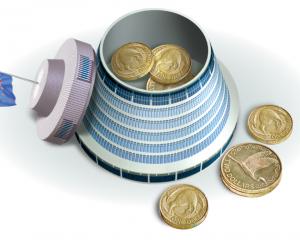

This time English was not bluffing. The most exciting aspect of Budget 2016 was a car bomb threat on the forecourt of Parliament which prompted security to tell those inside the Budget lockup to stay away from the windows and threatened to derail English's appearance.
English had promised any new funding would go into areas under pressure from population strain, such as health and education. That proved to be the case for much of the $1.6 billion extra spending.
There were some new measures to please people - such as the national rollout of bowel screening. Few will bicker about increases in spending in elective surgery or the larger than expected increase in funding for DHBs.
The most controversial decision is likely to be one to freeze the operational funding of schools and base extra funding on the number of at-risk children at a school, regardless of decile. That new approach will mean some schools get no increase while others get up to 4 per cent.
In his speech during the lock-up, English emphasised the pride National took in its economic management. He got his reward with a slim surplus this year, forecast to rise to $6 billion by 2020 and net debt to shrink to about 20 per cent of GDP by 2020 - English's target.
If anyone was in doubt English was serious about that target of reducing debt, three of his four 'fiscal priorities' in the Budget related to paying off debt. The fourth was to deliver income tax cuts -a goal which re-entered English's priority list in 2015.
Those tax cuts were scrapped this year to instead pay for education and health. Prime Minister John Key has mused about the prospect of a $3 billion tax cut package after 2017.
Musings aren't included in official forecasts, so Treasury's view on whether that will imperil English's precious debt target are unknown. Asked himself if there was the money for those, English replied simply "those are questions for the future.''
- by Claire Trevett of the NZ Herald








